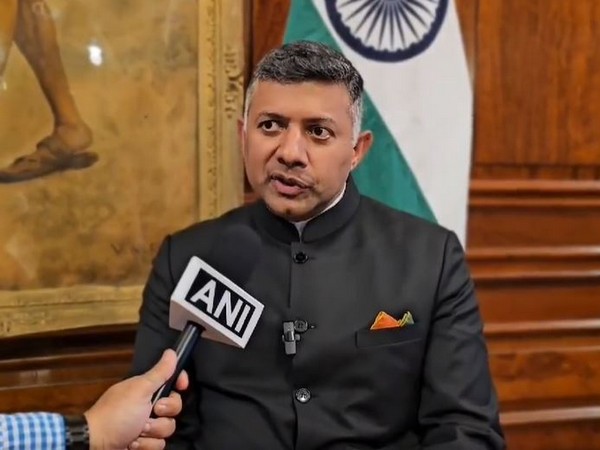


Vikram Doraiswami, the Indian High Commissioner to the United Kingdom was in news, after he and the Consul General, were stopped by pro-Khalistan elements, from entering a Gurdwara in Glasgow on Friday. Sensing the danger, the two diplomats decided to leave the premises, though the incident did lead to the Indian authorities taking up the matter with the British Foreign Office and making it clear that it was a case which needed police consideration. Doraiswami has since then gone back to London, but questions have been raised as to what was the need for him to go to the Gurdwara in the first place, given the hostile atmosphere that exists in several western countries including the UK, Canada, Australia, New Zealand and the United States. At all these places, fanatic Sikhs have threatened to harm Indian diplomats while claiming that the Indian government was pursuing polices which were not in the interest of the community. In the past there have been attacks on our High Commission (Embassies) and consul offices in these countries, and the police at these places have been unable to rein in the ultras. And after Canadian Prime Minister Justin Trudeau accused New Delhi of getting Hardeep Singh Nijjar, a Canadian National (and a Khalistan leader) executed on the Canadian soil, things have been getting worse. In the backdrop of all that is being witnessed, the issue is why did the Indian High Commissioner in London decide to go to Glasgow? Did the Intelligence officers attached to the Mission, conduct a pre-visit assessment and if they did, why were they unable to anticipate such an incident? Thirdly, if the High Commissioner indeed had decided to go, were the local police authorities in Glasgow informed and if they were, why were they not there? The MEA has stated that there were community issues which the Envoy was to address at the Gurdwara. Were these issues so important that they could not have been sorted out either at the High Commission in London or at the Consul General’s office at Edinburgh? Most of those who were to be present at the Gurdwara were in any case, citizens of United Kingdom and so why would the Indian High Commissioner be going out of the way, in an atmosphere where his safety is at risk, to speak to the Indian diaspora. It should be recalled that way back in 1984, an Indian diplomat, Ravindra Mhatre was kidnapped and killed in Birmingham by British Kashmiri militants. Should not our external affairs ministry lay down specifications and guidelines for our diplomats who are posted in these countries, where there is increased hostility. Many years ago, a conscious decision had been taken in New Delhi that no diplomat would go into a Gurdwara if there was a threat perception. In fact, many Sikh officers were not posted to Canada in particular, to ensure that they were not harmed by extremists who were opposed to the policies of the then government. Even in the case of a top official who occupied vital positions in the intelligence community, the government had initially turned down a proposal to post him to Canada. This was however reviewed and later when the officer was sent there, he made it a point of not visiting any Gurdwaras where fanatics had wrested control. Under normal circumstances, Gurdwaras are open to anyone who wishes to seek divine blessings and also needs any kind of assistance. However, in some of the western countries, pro-Khalistan groups have virtually seized the Gurdwaras and succeeded in intimidating other devotees. A recent visit by a TV channel to the Surrey Gurdwara which Nijjar used to visit and was later killed outside, showed that posters glorifying those who had been declared terrorists by India, had been put up prominently. Foreign minister S. Jaishankar is right that Canada in fact was harbouring terrorists on its soil and those who were actively engaged in provoking and propagating violence against the Indian State. It is also well known that less than .05 percent of Sikhs who are settled in Canada want a separate state of Khalistan. Most of the others were against violence of any nature and wished to lead peaceful lives, upholding the rule of law. The problem is that in some of the countries including Canada, in the name of promoting democracy and the right to freely express views, extremists have been spreading hatred and spewing venom against India and her citizens. Punjab has hardly a family which does not have a member living in Canada or any of the other western countries where the Khalistan movement is being nurtured. But even in Punjab, the overwhelming majority is against the concept of a separate Sikh State. There is an exaggerated belief in some quarters that the rise of extremism would help the ruling dispensation in India to pursue its divisive politics. This appears to be unacceptable since any form of extremism is very difficult to counter and India which witnessed Sikh militancy in the 1980s and 1990s, is certainly aware of this more than anyone else. On its part, the MEA must lay fresh guidelines for its diplomats and mission staff, so far as accepting invitations from places, which are prone to violence are concerned. In undiplomatic language the decision by the Indian High Commissioner to visit the Gurdwara in Glasgow was “foolish and completely avoidable’’. Fortunately, no harm took place but there are lessons which need to be also learnt from this incident. The MEA must hold an inquiry to ascertain why this risky mission to Scotland was undertaken. Vigilance is what needs to be exercised and no chances should be taken in the future.